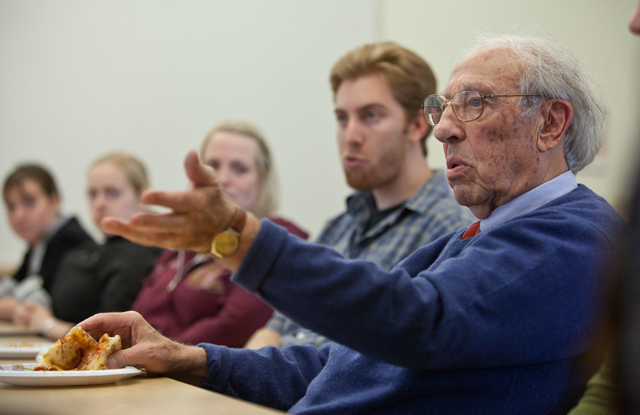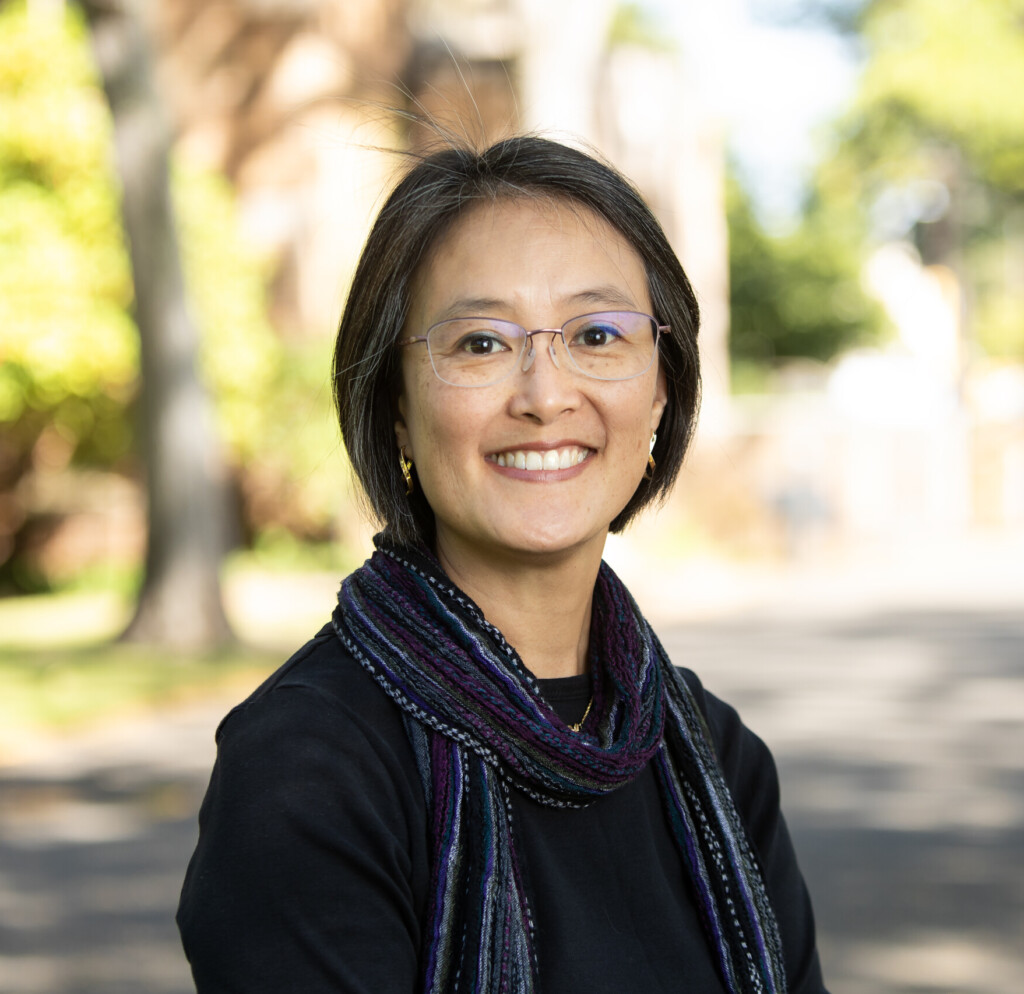Page 31 • (1,155 results in 0.037 seconds)
-
Major in Chemistry 51 semester hours: 47 semester hours in Foundation courses, plus 4 semester hours in CHEM 342 Foundation Courses 47 semester hours Chemistry Courses 29 semester hours CHEM 115,
253.538.6393 www.plu.edu/chemistry/ chair@chem.plu.edu Andrea Munro, Ph.D., Chair Chemistry involves the study of matter at the atomic and molecular level. Concepts and tools of chemistry are used to study the composition, structure, reactivity, and energy changes of materials in the world around us. At PLU, students will find a chemistry program that supports their interests, whether in the chemistry of natural products, forensics, the environment, biological systems, polymers, or inorganic
-
1 Office of Naval Research Award Redipients were selected from several candidates by Captain Matthew Harper, U.S. Navy.
for science. Take on big Ideas in biological and medical categories.W.F. WestAlzheimer’s Study: Inducing the APOE Gene Using Colchicine in Zebrafish Embryos12 Aidan MooreAchievement in Research in Psycological ScienceAmerican Psychological AssociationBest research project in Psycological ScienceBellarmineThe Effect of Perceived Sex of Target on the Self-Disclosure of Adolescent Males12 Zachary SongUS Metric AssociationUse of International System of Units AwardBest use of the metric
-

Nobel Prize laureate Edmond Fischer talks to PLU chemistry and biology students about the joys and frustrations of research work last Friday, May 6. (Photo by John Froschauer) Nobel laureate talks about the unpredictability of biochemistry…and it’s just plain fun. By Barbara Clements For Nobel…
would,” said Fischer.”Then you have to decide whether to continue or if it continues to fail, whether you have the courage to drop it.” Fischer won the Nobel Prize in 1992 along with Edwin Krebs for their work in determining that reversible protein phosphorylation can be a regulatory mechanism in biological processes. Reversible protein phosphorylation is responsible for regulation of processes as diverse as mobilization of glucose from glycogen to the prevention of transplant rejection by
-

For Venice Jakowchuk ’23, a single general education class sparked a passion that has since taken her—literally and/or metaphorically—from Herefordshire, England and Aberdeen, Scotland to the central highlands of Mexico and back to the lands of the Nisqually peoples. Originally from Arizona, Jakowchuk entered PLU…
central highlands of Mexico and back to the lands of the Nisqually peoples.Originally from Arizona, Jakowchuk entered PLU with a dance scholarship, tentatively planning to study history and become a teacher. But a physical anthropology class in biological diversity with department chair Dr. Bradford Andrews introduced her to a field—and a way of seeing the past—that piqued her interest. And then in Dr. Andrews’s introduction to archaeology course, Jakowchuk said she just fell in love with the field
-
On this page you will find information on upcoming graduate school information sessions for programs related to Kinesiology.
Grad School InformationOn this page you will find information on upcoming graduate school information sessions for programs related to Kinesiology. This page will be updated frequently with links to register for virtual and in-person sessions. Program NameSession DateRegister / More Information Tufts Physical Therapy, SeattleOngoing Virtual Office HoursMore Information Pacific Northwest University of Health Sciences - Occupational TherapyJuly 10, 2024More Information University of Puget Sound
-

TACOMA, WASH. (March 8, 2019) — A prestigious $650,000 grant from the National Science Foundation (NSF) will support academically talented low-income students who come to Pacific Lutheran University to study STEM (Science,Technology, Engineering and Math) subjects. Winning the grant was a team effort of PLU’s…
of Natural Sciences faculty, including Tina Saxowsky, principal investigator and associate professor of chemistry, along with Dean of Natural Sciences and professor of biology Ann Auman and faculty members Shannon Seidel, assistant professor of biology, and Amy Siegesmund, associate professor of biology.“We are very excited about the ability to implement the work outlined in our proposal,” Auman said. “Not only will this funding allow us to provide significant scholarship support for low-income
-
TACOMA, WASH. (Nov. 8, 2019) — In recognition of his impactful work as an academic researcher and mentor, Pacific Lutheran University’s Dr. Dean Waldow has been awarded the Lynwood W. Swanson Scientific Research Award by the M. J. Murdock Charitable Trust. The purpose of the…
part of the Murdock College Science Research Program, is to support and recognize undergraduate research in the natural sciences at four-year institutions across the Pacific Northwest. The award is given to exemplary senior faculty members who run established, productive and nationally recognized research programs, and comes with $15,000 in funding. “To be recognized by your peers and in a large setting like this, you know, the whole Northwest, it really made me feel humble,” Waldow said. “There
-
For either the Bachelor of Arts or Bachelor of Science degree, the student must take our introductory core sequence (BIOL 225 and 226) and a semester of genetics (BIOL 330).
, try it out, experiment with it and experience it. Each major completes a two-course core sequence in introductory biology, followed by a semester of genetics. Upper-division courses in the biology program are designed so that students can continue to develop both breadth and depth of understanding of biology, expanding on the logical framework that core courses provide; breadth of knowledge and conceptual understanding are required for investigating biological questions and the application of
-

Associate Professor of Education | School of Education | kimck@plu.edu | 253-535-7775 | Dr.
Cathy Kim Associate Professor of Education Phone: 253-535-7775 Email: kimck@plu.edu Office Location: Hauge Administration Building - 121 Status:On Sabbatical Professional Biography Education Ph.D., Curriculum & Instruction: Technology Integration & Learning Sciences , University of Washington, 2017 M.A.T., University of Puget Sound, 1996 B.S., Western Washington University, 1995 Washington State Continuing Teaching Certification, since 1996 National Board Certification, since 2002 Elluminate
-

Professor of Mathematics | International Honors | heathdj@plu.edu | 253-535-7401 | Daniel Heath, also known as “Deej,” earned a B.A.
: Refereed. Winner of the 2015 Carl B. Allendoerfer prize for expository excellence. Daniel J. Heath and Joshua Jacobs. "Geometry Playground." The MAA Mathematical Sciences Digital Library, Loci: Resources 2010: Refereed. "Rethinking Pythagoras." The MAA Mathematical Sciences Digital Library, Loci 2010: Refereed. D. Heath, M. Isaacs, J. Kiltenen and J. Sklar. "Symmetric and Alternating Groups Generated by a Full Cycle and Another Element." American Mathematical Monthly Vol. 116, No. 5, 2009: Refereed. D
Do you have any feedback for us? If so, feel free to use our Feedback Form.


